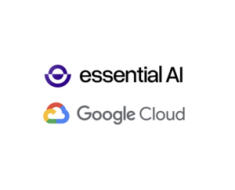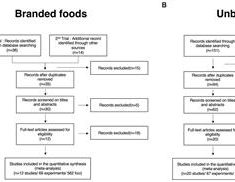This paper investigates the potential of multi-agent systems (MAS) as a pathway to achieving Artificial General Intelligence (AGI). While current AI systems, such as GPTs, Gemini, and Claude, excel in specific domains through centralized processing and large-scale language models (LLMs), they fall short in generalizing across tasks, and in planning, acting, and reasoning in real-world contexts. MAS, by contrast, operate through a decentralized network of specialized agents capable of continuous learning, contextual understanding, collaborative reasoning, distributed planning, and coordinated action. The cognitive exchange platform plays a crucial role in facilitating these capabilities and enables agents to augment their knowledge bases with information shared by other agents. By comparing MAS with traditional AI approaches, we argue that MAS offer a more comprehensive pathway to AGI.
1.1 The Pursuit of AGI
Artificial General Intelligence (AGI) aims to create systems capable of performing any intellectual task that a human can. While current AI systems like GPTs, Gemini, and Claude excel in specific tasks through centralized processing and large-scale language models (LLMs), they are limited in their ability to generalize across diverse tasks, and in planning, acting, and reasoning effectively in real-world contexts. This paper explores how multi-agent systems (MAS) could address these limitations and serve as a promising pathway to AGI.
1.2 Multi-Agent Systems as a Pathway to AGI
Multi-agent systems (MAS) operate through a decentralized network of specialized agents, each contributing unique knowledge and capabilities. This decentralized approach enables MAS to perform continuous learning, contextual understanding, collaborative reasoning, distributed planning, and coordinated action. The cognitive exchange platform plays a crucial role in this framework by facilitating seamless interaction and information sharing among agents. MAS offer a robust alternative to centralized, transformer-based models by addressing the cognitive functions that current AI systems struggle with.
2.1 Continuous Learning with the Learning Flywheel
In MAS, learning is an iterative process facilitated by the learning flywheel — a cycle of data acquisition, processing, and improvement. Each agent continuously learns from its environment and interactions, updating its knowledge base through the cognitive exchange platform. This process allows the system to evolve in real-time, adapting to new challenges and maintaining relevance.
2.2 Knowledge Sharing and Integration at the Concept and Event Level
MAS focus on granular knowledge sharing at the concept and event levels. This modular approach allows agents to share only relevant information, similar to human communication. The cognitive exchange platform supports this targeted knowledge sharing, enabling effective integration and utilization of shared knowledge, which enhances the system’s learning capabilities.
3.1 Contextual Comprehension
Understanding in MAS involves interpreting and applying information based on its context and relevance. The cognitive exchange platform provides agents with access to domain-specific knowledge and contextual frameworks, facilitating accurate information processing. This contextual understanding is essential for effective decision-making and problem-solving in dynamic environments.
3.2 Ontological Graphs and Semantic Mesh for Deep Understanding
MAS use ontological graphs and a semantic mesh to structure and comprehend relationships between concepts and events. Ontological graphs organize knowledge hierarchically, while the semantic mesh integrates these relationships into a cohesive framework. This structured approach supports effective reasoning and application of knowledge, contributing to the system’s overall intelligence.
4.1 Collaborative Reasoning
Reasoning within MAS is a collaborative process where agents combine their specialized knowledge to tackle complex problems. The cognitive exchange platform facilitates the sharing of insights, hypotheses, and refinements among agents, enabling the system to address challenges beyond the capability of any single agent.
4.2 Causal Inference and Decision-Making
Agents in MAS use causal inference to understand relationships between factors and predict outcomes. The cognitive exchange platform supports the sharing and refinement of causal models, improving the accuracy of decision-making. This capability is crucial for transitioning from understanding to action.
5.1 Distributed Planning
Planning in MAS is distributed among agents, each contributing to the development of overall strategies based on their expertise. The cognitive exchange platform coordinates these efforts, ensuring that planning is aligned and collaborative, leveraging the diverse knowledge and skills of individual agents.
5.2 Adaptive Strategy Formation
As agents learn and reason, they refine their plans to adapt to new information and changing conditions. The cognitive exchange platform supports adaptive strategy formation by allowing real-time adjustments, which is essential for managing the complexity and uncertainty of real-world applications.
6.1 Coordinated Execution
Acting in MAS involves the coordinated execution of tasks across multiple agents. The cognitive exchange platform ensures synchronization in actions, allowing agents to function as a unified system, which is crucial for tasks requiring precise timing and collaboration.
6.2 Real-Time Response and Feedback
Agents in MAS respond in real time, adjusting their actions based on immediate feedback. The cognitive exchange platform enables this responsiveness, ensuring that actions remain aligned with the system’s objectives and adapting to new information and feedback.
7.1 Conceptual Framework: Connecting Agents
The cognitive exchange platform functions as a connective layer among agents, similar to how the internet connects web servers. Each agent operates with its own specialized knowledge base, communicating and coordinating through standardized protocols. These protocols, in the context of MAS, are analogous to HTTPS but are used for natural language communication between agents. This framework enables seamless interaction and data sharing, facilitating the collective intelligence of the system.
7.2 Comparative Overview: MAS vs. Traditional AI
Traditional AI systems, such as those based on large language models (LLMs) like GPTs, Gemini, and Claude, rely on centralized processing and large-scale models. In contrast, MAS utilize decentralized networks of agents, each contributing specialized knowledge and capabilities. This comparison underscores the advantages of MAS in terms of scalability, adaptability, and their ability to address cognitive functions that go beyond the scope of traditional AI models.
7.3 Agents as Web Servers with Knowledge Bases
In MAS, each agent functions similarly to a web server, maintaining its own knowledge base and interacting with other agents through the cognitive exchange platform. This structure allows agents to contribute their expertise and insights, augmenting each other’s knowledge and enhancing the overall intelligence and capability of the system.
7.4 The Role of HTTPS-like Protocols in MAS
The cognitive exchange platform employs communication protocols analogous to HTTPS, providing a standardized and secure means of interaction among agents. These protocols support seamless data exchange and coordination, with natural language serving as the medium for communication between agents. This analogy highlights the platform’s role in enabling agents to engage in effective and efficient exchanges of information, crucial for maintaining the system’s coherence and responsiveness.
7.5 Augmenting Agents with Shared Knowledge
A unique aspect of the cognitive exchange platform is its ability to facilitate the sharing of specific knowledge bases between agents. This capability allows agents to augment their own knowledge with insights and data from other agents, similar to how collaborative tools enhance individual capabilities. By leveraging shared knowledge, agents can enhance their problem-solving abilities and adapt more effectively to new challenges, thus improving the overall intelligence and functionality of the MAS.
8.1 Summary of Key Points
This paper has explored how multi-agent systems provide a pathway to AGI by addressing cognitive functions that current transformer-based models struggle with. MAS’s capabilities in learning, understanding, reasoning, planning, and acting were discussed, along with the role of the cognitive exchange platform in supporting these functions. The ability to share and augment knowledge among agents further enhances the effectiveness of MAS.
8.2 Future Directions and Innovations
Future research should focus on advancing the cognitive exchange platform and exploring new ways to enhance MAS capabilities. Innovations in communication protocols, knowledge integration, and adaptive strategies could drive progress towards AGI, positioning MAS as a viable alternative to traditional AI approaches.



